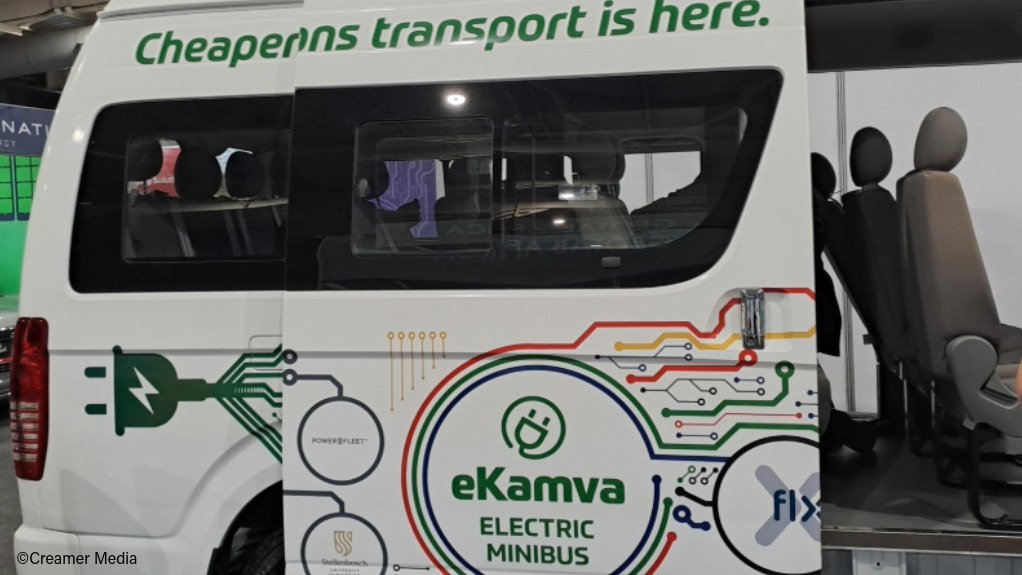Transport Minister Barbara Creecy emphasised the importance of implementing smart solutions as part of efforts to upgrade and revitalise the country’s transport sector, with commuter numbers severely impacted by the pandemic, and passenger and freight transport afflicted by vandalism, theft and infrastructure issues.
She was speaking during the first day of the Smarter Mobility Africa Summit, being held in Midrand this week.
Creecy said the aim was to rebuild the system, while ensuring it was better than it was before the pandemic, and taking into consideration the trends of sustainability and the Fourth Industrial Revolution.
Creecy highlighted that the Passenger Rail Agency of South Africa (PRASA) had already employed several smart infrastructure solutions to recoup pre-pandemic commuter levels.
Moreover, she said technology solutions implemented by PRASA had considerably reduced the levels of theft and vandalism.
Creecy also informed that a working group had been established between PRASA and the Gautrain to discern the expansions that the latter wants to undertake, to ensure that there is integration and interoperability between the two rail systems and to enable seamless transport between the two for commuters in the future.
She further pointed out that State-owned Transnet Freight Rail had yet to reach pre-Covid freight volumes, which was considerably impacting on the transport of minerals, as well as revenues.
She said the entity had also embraced smart solutions as part of its improvement efforts.
For example, earlier this year, Transnet relaunched the Integrated Port Management System (IPMS) at its eight commercial ports as part of its digital transformation strategy that is aimed at creating a smart port system by 2028.
IPMS offers vessel management technology and is globally recognised as a system that facilitates efficient vessel monitoring through the automation of traditionally managed operations.
Creecy said smart solutions could be pursued more broadly across the sector, for example, moving the drivers licensing system online to reduce administrative backlogs and corruption.
She highlighted cross-border management as another area that held potential for smart solutions.
Creecy also advocated for cashless payments in the transport system, and in this regard, lauded the South African National Taxi Council for implementing an online system for payment.
Meanwhile, the first day of the summit also saw the unveiling of South Africa’s first electric minibus taxi, the eKamva, which is slated to be operating on the country's roads by early next year, with charging infrastructure also needing to be implemented.
Early-stage electric vehicle company flxEV undertook this project, with its partners – GoMetro, Stellenbosch University, Powerfleet (previously Mix Telematics), ACDC Dynamics and the Centre for Renewable and Sustainable Energy Studies.
The project team, consisting of GoMetro, Powerfleet (formerly MiX Telematics)
The 15-seater vehicle is said to provide up to 70% lower monthly costs; however, the upfront cost is pricier than an internal combustion engine vehicle.
The vehicle has a range of more than 200 km per charge and reaches 80% recharge in under an hour. It boasts zero tailpipe emissions, as part of the company’s drive to decarbonise the taxi industry.
The Summit also had several side stages dedicated to different facets of the transport industry. On the Green Fleets stage, points raised included the importance of original equipment manufacturers having to take responsibility to recycle or recommission electric vehicle (EV) components at end of life, as required by extended producer responsibility regulations.
Further to this being mandated, business could also benefit by capitalising on opportunities provided by the circular economy, such as the creation of new products. Moreover, it would ensure safety by properly disposing of, recycling, or reusing elements that could be high risk, as well as engendering environmental benefits.
The need to decarbonise fleets was also emphasised, with these making up a large portion of vehicles on the road and contributing considerably to carbon emissions globally.
Speakers highlighted that environmental benefits could be realised by this, especially in terms of public health. However, they noted that the business imperative must remain, with fleets still needing to operate efficiently, and for solutions to be financially viable.
The latter was noted as challenging, with many fleet operators and owners impeded by upfront costs and financing costs. However, globally, several financing models were being pursued which could hold promise for the African continent.
Speakers also mentioned that there was no silver bullet solution for the continent in looking to decarbonise fleets, with each country needing to discern what would work best for it, depending on resources, needs and viable technologies.
However, Africa could benefit from having a continental policy in this regard, that would enable investment and collaboration and provide incentives.
The need to start localisation of some of the equipment needed to decarbonise fleets was also emphasised.
Also, the issue of Europe dumping used cars in Africa was raised, with some speakers saying that preventing this could remove harmful effects from old vehicles while other green solutions were pursued.
Edited by: Chanel de Bruyn
Creamer Media Senior Deputy Editor Online
EMAIL THIS ARTICLE SAVE THIS ARTICLE
ARTICLE ENQUIRY
To subscribe email subscriptions@creamermedia.co.za or click here
To advertise email advertising@creamermedia.co.za or click here













